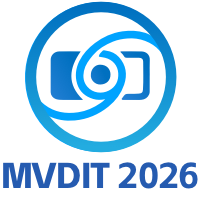 2026 International Conference on Machine Vision, Detection and 3D Imaging Technology
2026 International Conference on Machine Vision, Detection and 3D Imaging Technology
 2026 International Conference on Machine Vision, Detection and 3D Imaging Technology
2026 International Conference on Machine Vision, Detection and 3D Imaging Technology
Submission Instructions
Submission Methods
Publication
All submissions will undergo a double-blind peer review by 2-3 experts in relevant fields. Acceptance will be based on the quality of the paper and satisfactory revisions in response to reviewers’ comments. Accepted papers, following proper registration and presentation, will be included in the conference proceedings and submitted for indexing in EI Compendex and Scopus.
NOTE:
Academic integrity represents the moral code and ethical policy upheld within academia, encompassing values such as honesty, rigor in research, the avoidance of cheating and plagiarism, and adherence to high academic standards. Scholars are expected to strictly follow these principles; failure to do so grants the review committee the authority to reject a paper outright during the review process. Given that databases are continuously updated, if plagiarism or a high repetition rate is later identified, the publisher reserves the right to reject the paper from publication. In such cases, the author bears full responsibility for any infractions.Notes: Academic integrity represents the moral code and ethical policy upheld within academia, encompassing values such as honesty, rigor in research, the avoidance of cheating and plagiarism, and adherence to high academic standards. Scholars are expected to strictly follow these principles; failure to do so grants the review committee the authority to reject a paper outright during the review process. Given that databases are continuously updated, if plagiarism or a high repetition rate is later identified, the publisher reserves the right to reject the paper from publication. In such cases, the author bears full responsibility for any infractions.